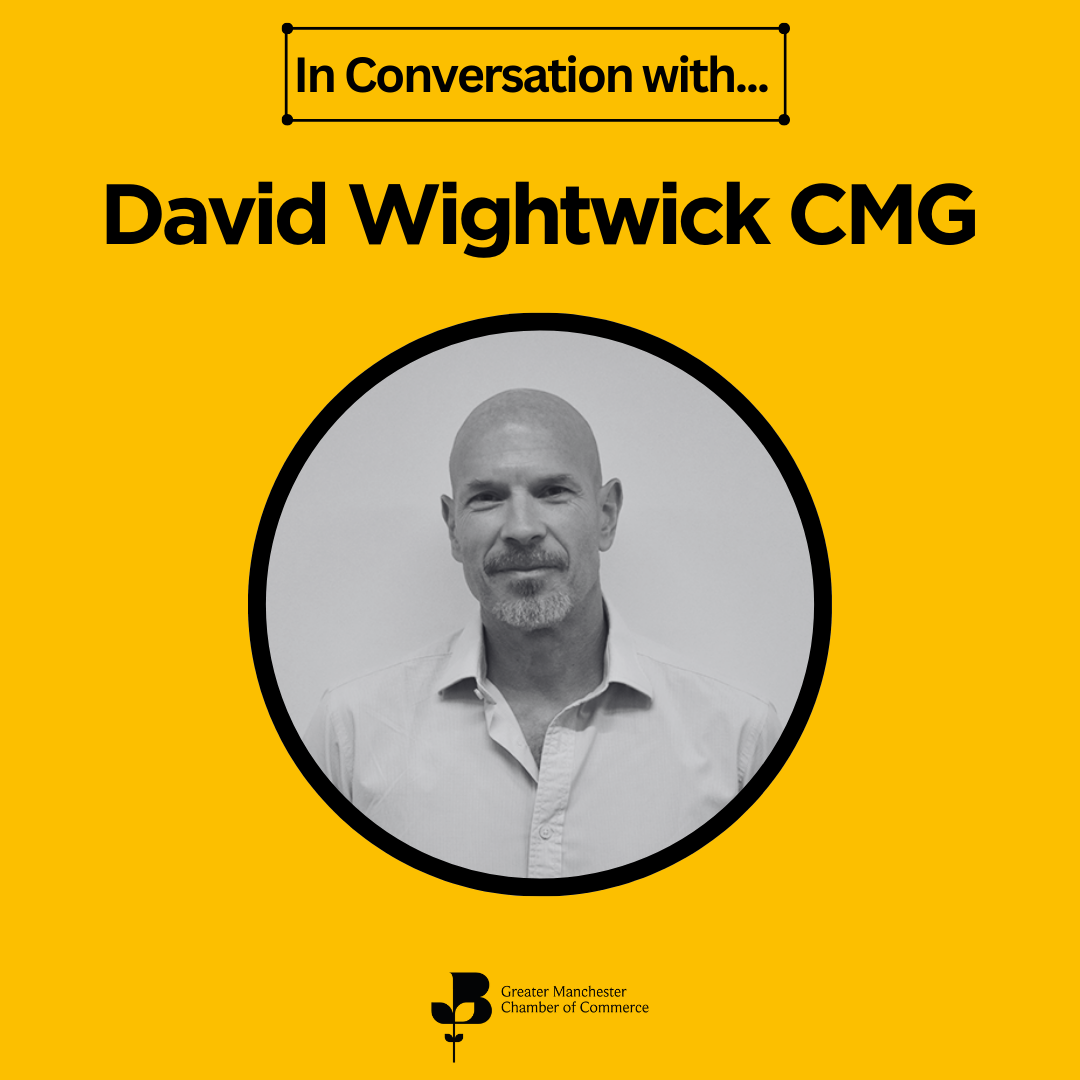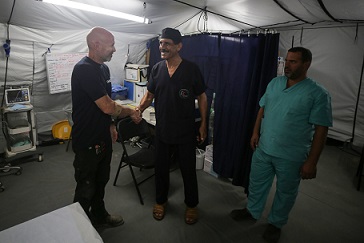
The CEO of UK-Med talks about the Manchester-based humanitarian medical charity’s role supporting those affected by conflict and disaster around the globe.
Gaza and Ukraine have become familiar sights on our TV screens but for David Wightwick and his team these are places that they have witnessed first-hand. While world leaders continue to argue about the causes of each of these conflicts and how to resolve them, it is the UK-Med team who are helping the local people affected on the ground.
David joined UK-Med as Chief Executive in 2018 after serving in several senior roles in the humanitarian sector and witnessing many previous conflicts and disasters. He has worked as senior adviser in emergency response for WHO, as Global Operations Director for Merlin, Health Director with GOAL, Director of Operations at Save the Children and as a Country Director with IMC.
On the Front Line
As CEO David’s job is very far from being office based and he spent six months of this year in Gaza seeing the situation for himself. When he speaks about Gaza, you get a real sense of the human impact of the conflict and why it is so vital that medical organisations like UK-Med are there.
UK-Med now provides a third of the health service in Gaza and has treated hundreds of ill and injured people. Members of the UK-Med team are working with doctors at Nasser Hospital in Khan Younis, which is one of the few remaining hospitals in Gaza, and they are also treating people at two field hospitals in Al Mawasi and Zuwaida.
 The number of patients helped by UK-Med in Gaza is staggering. The larger of the two field hospitals has 90 beds and is treating 500 patients a day, while the smaller hospital treats 450 patients a day. Combined with the patients at the main hospital, this means UK-Med staff are dealing with an average of 1,400 patients a day and have so far treated 300,000 people, which is over 10% of the population.
The number of patients helped by UK-Med in Gaza is staggering. The larger of the two field hospitals has 90 beds and is treating 500 patients a day, while the smaller hospital treats 450 patients a day. Combined with the patients at the main hospital, this means UK-Med staff are dealing with an average of 1,400 patients a day and have so far treated 300,000 people, which is over 10% of the population.
The team not only treats those injured in the conflict but also helps people manage day to day health problems, such as diabetes and high blood pressure, which local medical staff are struggling to cope with.
In Ukraine UK-Med was on the ground immediately after the invasion in 2022. Since then, its emergency response has developed into its first long term country programme, with 55 people now providing vital healthcare in frontline areas. The charity also trains local health staff, deploys surgeons to support overburdened hospitals and provides mobile clinics in areas close to the frontline.
The experience of UK-Med staff in Ukraine and Gaza are very different, however. “In Ukraine it is possible to get away from the frontline as the whole country isn’t affected so people can experience some normality,” David explains. “Working in Gaza is like being in a cage - getting in and out is very difficult.”
Global Response
Although Gaza and Ukraine are the places most in the headlines, UK-Med continues to help people in other parts of the world. Doctors and nurses deployed through UK-Med are currently working in Rwanda to help tackle an outbreak of the Marburg virus, a rare disease which can cause serious illness and death.
Born out of the NHS, UK-Med is the only UK-based NGO to be verified as an emergency medical team by the World Health Organisation. The charity provides healthcare for people impacted by disasters or conflict anywhere in the world, drawing on a range of health and non-health specialists to support its global responses.
For over 30 years, UK-Med has been working for a world where everyone has the healthcare they need when crisis and disaster strike. UK-Med operates both independently and as the delivery partner for the UK Emergency Medical Team, which is the UK government’s response to a humanitarian crisis overseas and this can affect how the charity is viewed.
“It can be good to have that official support and recognition,” David says. “But sometimes it can work against you as people abroad might say you’re working for the British government.”
UK-Med has hundreds of NHS medics on its register who are rigorously trained for emergencies. Along with its global network of healthcare professionals it is on call to get to disaster zones at 24 hours’ notice and save lives. Health professionals who sign up with UK-Med usually need to be available for six weeks or longer, but NHS staff joining a UK Emergency Team response can make arrangements to do shorter three-week placements.
Meeting the Challenges
David says the three biggest challenges facing the world today are “conflict, disease and climate change” but he believes these problems are being compounded by competition between the different global power blocs such as China, the EU and the USA. But whatever the political situation on the ground or what action the UK government decides to take, UK-Med is always ready to react swiftly when a crisis develops.
“Donations from the public are incredibly important,” David adds. “It means we have the ability to respond to a crisis independently without waiting for the government.”
Give Your Support
There are many ways you can support the work of UK-Med from taking part in charity events to virtual fundraising. For more information, visit https://www.uk-med.org/fundraising
You can find out more about UK-Med’s work across the world at https://www.uk-med.org/

